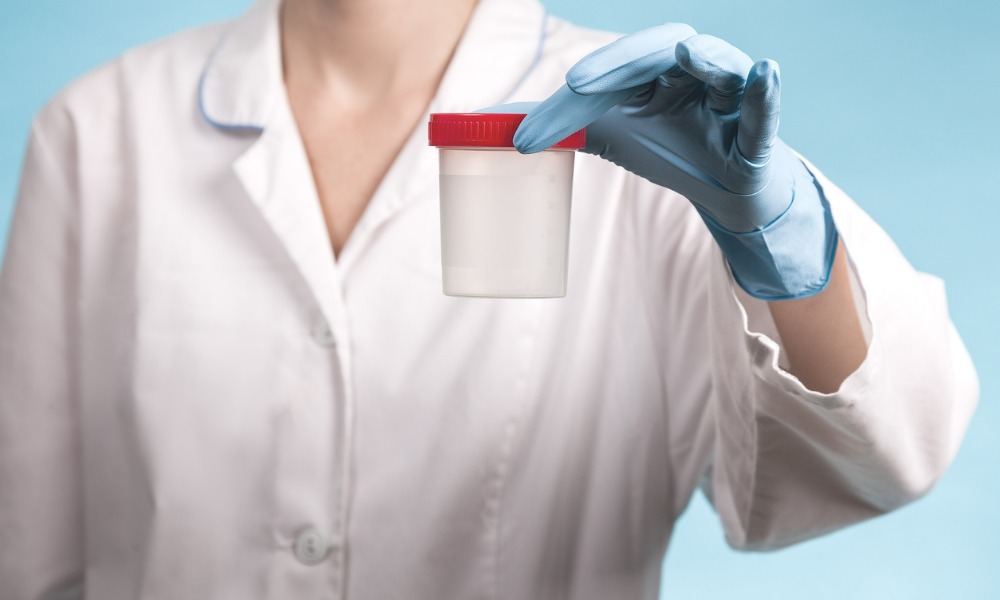Employer refused to reassign worker after testing positive

A third party hired by an employer to collect and test an employee’s biological samples for drugs does not owe the employee a common-law duty to perform services with reasonable care, the Texas Supreme Court recently said.
Turnaround Welding Services employed the respondent as a pipefitter, which had been his job for over 25 years. He was considered an at-will employee.
Turnaround assigned him to the Valero Ardmore Refinery and ordered him to provide the Houston Area Safety Council with hair and urine samples for drug and alcohol screenings, in line with Valero’s policy for on-site workers.
Read more: Can an employee be terminated for failure to submit to a drug test?
The Safety Council collected the respondent’s samples and delivered them to Psychemedics Corporation for laboratory testing. Psychemedics reported that his hair sample tested positive for cocaine and a cocaine metabolite.
The respondent denied ever using cocaine. Before this incident, he had never gotten a positive result in the drug tests he had taken in the course of his work as a pipefitter. He gave a second sample to DISA Global Solutions, another third-party collection entity.
DISA sent the sample to Psychemedics for testing. The respondent’s second and third samples had negative results for cocaine. DISA approved him for returning to work after he completed a substance-abuse course. However, Turnaround refused to reassign him to any jobsite, including the Valero facility.
The respondent collected unemployment benefits and eventually found another employer. He filed a lawsuit against Turnaround in federal court and settled his claims. He then sued Safety Council and Psychemedics — the petitioners in this case — for making him lose his job by negligently collecting, transporting, testing, and reporting the results of his first sample.
The trial court ruled in the petitioners’ favor. It found that they did not owe the respondent a legal duty.
The court of appeals reversed the trial court’s decision. There was a legal duty to use reasonable care in collecting and processing biological samples between third-party entities and the employees tested if the employer required the worker to submit to the test as a condition of employment, the appellate court said.
Employee loses before Supreme Court
In the case of Houston Area Safety Council, Inc. and Psychemedics Corporation v. Guillermo M. Mendez, the Texas Supreme Court reversed the appellate court’s judgment and ruled in favor of the petitioners, which were the third-party entities collecting or testing samples.
Because the respondent was an at-will employee, his employer could decide to terminate him for almost any reason, with the petitioners having no control over this decision, the Supreme Court said. The petitioners had no recommendation for the employer about what to do with the results and had no direct relationship with the employee tested, the Supreme Court added.
The Supreme Court considered the factors in the case of Greater Houston Transportation Co. v. Phillips (1990). It balanced the risk, foreseeability, and likelihood of injury against the social utility of the petitioners’ services and the magnitude and consequences of the burden that a legal duty would impose on them.
The Supreme Court concluded that, based on balancing the Phillips factors, it should not recognize a new common-law duty for third-party entities collecting or processing samples from employees. There was great social utility in testing employees, especially those with occupations posing substantial dangers to themselves, other employees, property, and the public, the Supreme Court said.
The petitioners asserted that the importance of drug testing and the burden that a new legal duty would place on them far outweighed the risk of harm to individual employees. The petitioners also argued that imposing a new duty might lead to the following:
- many frivolous and burdensome claims against third-party entities for every employee getting a positive result
- third-party entities attempting to transfer responsibility to employers through indemnity agreements
- third-party entities choosing not to collect samples for use in the employment context
- drastic increases in the price for employers seeking drug-screening tests
- a decline in employment drug screens
In the end, employers might take over the drug-testing program themselves, which might erode the employment-at-will doctrine, the petitioners said. Such employers might themselves be subject to liability for negligently collecting and testing employee drug samples, the petitioners added.






